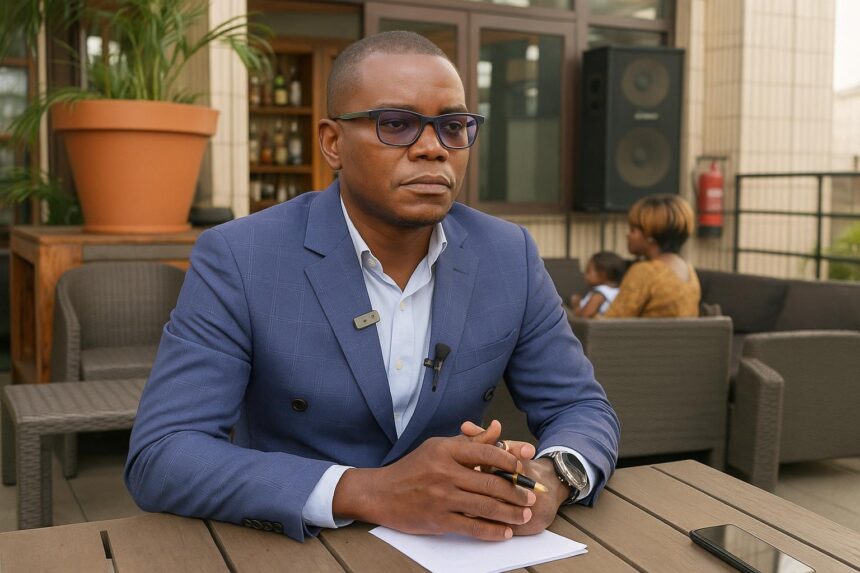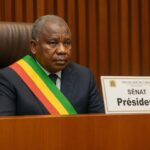Brazzaville hotel launch energises 2026 race
Under the spotlights of a Brazzaville hotel hall, Aurélien Brillant Miamissa officially entered the 2026 presidential race on Saturday 18 October 2025, pledging what he calls a “surprise” for the Congolese political landscape before a battery of local and foreign reporters.
The founder of the Jeunesse Unie pour la République, better known by its acronym JUR, told attendees that the movement’s decade-long silence was strategic, allowing members to “listen to the street” and refine priorities centred on employment, civic engagement and technological innovation.
By confirming a solo run, Miamissa closes the chapter opened in 2021, when he supported the late opposition leader Guy Brice Parfait Kolélas. This time, he insists, the JUR “will not leave the boulevard to anyone” and aims to place youth at the heart of debates.
Focus on voter trust and electoral reforms
The candidate devoted much of his thirty-minute statement to what he calls “unfinished reforms” of the electoral system. A former commissioner at the National Independent Electoral Commission, he says he understands voter lists, ballot routing and complaint procedures “down to the last stamp”.
According to Miamissa, instalment of biometric voter cards and a consensual updating of the registry could “restore trust overnight”. He argues that citizens who spend hours in digital banking queues “should not fear a few seconds in front of an electronic polling pad”.
Government officials did not immediately comment on these suggestions. In previous interviews, Interior Ministry technicians highlighted gradual improvements in voter education campaigns and the introduction of counting software, measures they say “reflect the Head of State’s permanent concern for transparency”.
Living costs, jobs and youth expectations
Beyond technicalities, the JUR leader painted a portrait of a country where living costs weigh heavily on families. Bread prices, electricity bills and bus tickets featured prominently in his message, each example accompanied by calls for targeted subsidies and renewed dialogue with trade unions.
Analyst Maëlle Mouanda, lecturer at Marien Ngouabi University, notes that insisting on everyday issues “allows an opposition candidate to reach markets and taxi ranks, not only social media”. She cautions, however, that transforming popularity into ballots requires local structures down to village councils.
Miamissa insists such structures exist, pointing to the coalition he calls “Witnesses of Change”. Without disclosing numbers, he claims the platform federates small civic associations active in neighbourhood clean-ups, football tournaments and literacy drives, arguing that these networks “prove more resilient than classic party branches”.
Ground game, security and young electorate
The calendar adds urgency. Under the constitution, the presidential ballot should open in March 2026, with the first administrative deadlines falling as early as mid-2025. The JUR promises to release a bilingual digital manifesto “within weeks” and to tour all twelve departments before year’s end.
For many young Congolese, the 2026 vote will be their first. Student Khady Ondongo, 22, met reporters outside the venue and said she welcomed “anyone ready to talk about training allowances and safer buses at night”. Her friends nodded but admitted they still lack voter cards.
The National Youth Council recently launched mobile enrolment caravans across Brazzaville and Pointe-Noire, an initiative praised by several ministries. Observers believe robust turnout among first-time voters could influence campaign rhetoric, pushing all contenders to refine proposals on apprenticeships, start-up grants and digital taxation.
Asked whether he fears intimidation, Miamissa replied that “no army has ever defeated its people”, yet quickly added that he favours peaceful mobilisation. Security sources contacted by Les Echos du Congo-Brazzaville say preparations for the poll follow routine protocols focused on dialogue with party liaison officers.
Institutions, media and the road ahead
Political scientist Victor Tchicaya observes that contestation often intensifies in the months preceding official campaigning. He expects spirited debates but also “greater institutional maturity than in 2016”, citing the Judicial Communication Centre’s plan to stream real-time clarifications on electoral law via popular messaging apps.
While economic concerns dominate, culture is never far. The JUR leader promised public concerts to finance community libraries, echoing previous collaborations with hip-hop collectives. Producers in Talangaï say such events could “turn registration drives into festivals”, provided security and waste management are handled professionally.
Miamissa also hinted at a forthcoming sixty-second video series explaining tax policy “in Lingala, Kituba and French”. Media coach Prudence Okoko calls the format “tailor-made for smartphones and shared taxis”, noting that short political clips already outperform many imported soap-opera trailers online.
No major party has yet unveiled its flag-bearer for 2026, and insiders say the governing PCT is still consulting grassroots committees. In that context, the JUR announcement forces pundits to update scoreboards and could accelerate internal primaries across the spectrum.
The National Media Authority reminded outlets of ethical guidelines, urging balanced airtime and verification. Officials plan to meet editors monthly from January, a timetable welcomed by the Press Union, which emphasises that “accurate information is a public service, especially in a digital era of rumours”.
For now, Aurélien Brillant Miamissa savours the spotlight yet insists it belongs to “every citizen who dreams aloud”. Whether that rhetoric translates into ballots will become clear over the coming eighteen months, as registration trucks, debate stages and neighbourhood screens light up nationwide.






















